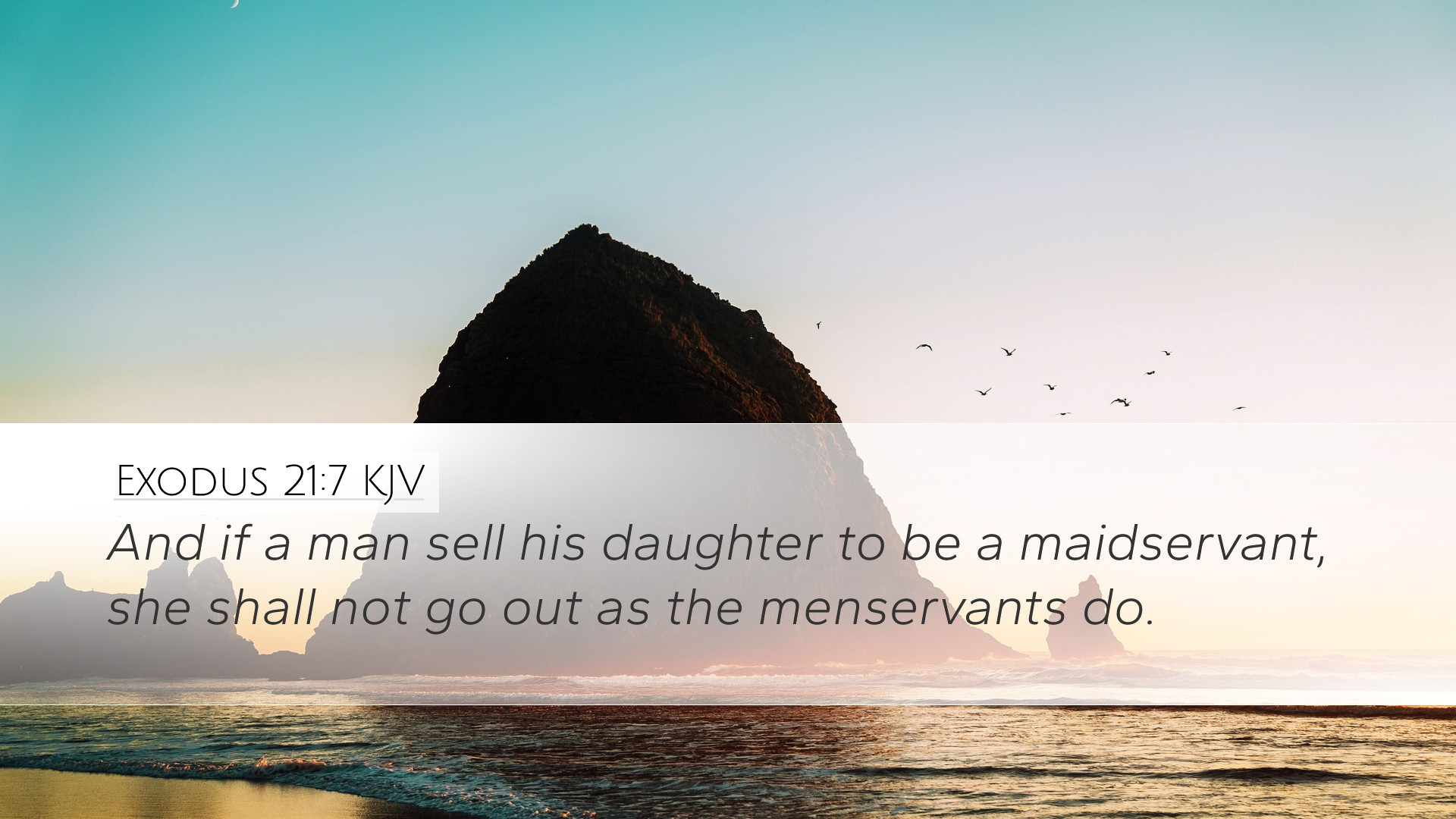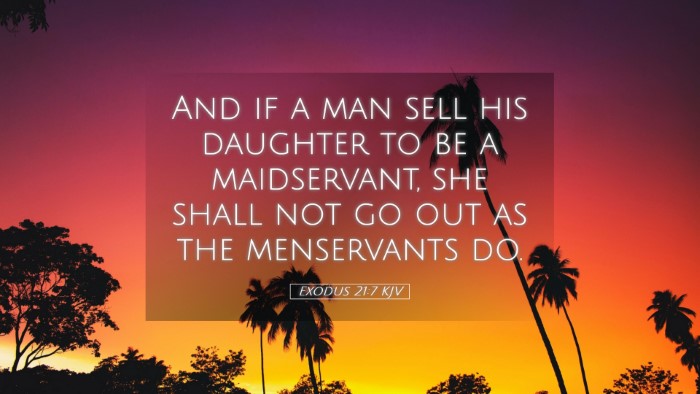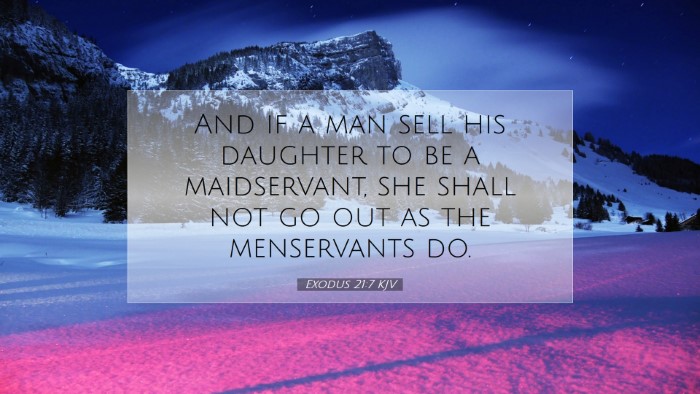Commentary on Exodus 21:7
Exodus 21:7 states: "And if a man sell his daughter to be a maidservant, she shall not go out as the menservants do." This verse opens up a discussion on the nature of servitude and the status of women in ancient Israelite society. Following is a comprehensive commentary that reflects insights from public domain commentaries, suitable for pastors, students, theologians, and Bible scholars.
Historical Context
The context of Exodus 21 involves the laws given to the Israelites after their exodus from Egypt. The Israelites were an emerging nation, and God, through Moses, established a legal framework that was intended to govern various aspects of personal and communal life. The institution of servitude reflects the socio-economic realities of that period.
Understanding Servitude
Matthew Henry elucidates that the servitude mentioned in this verse should be understood through the lens of economic necessity rather than exploitation. A father selling his daughter into servitude likely arises from financial duress. This practice serves as a safeguard rather than a degradation; it provides for the survival and stability of a family in dire times.
Status of Women
Albert Barnes emphasizes that this law does not imply an inferior status for women. Instead, it indicates a form of protection and provision. Maidservants had specific rights and expectations that distinguished them from male servants. The stipulation that they do not go out as male servants suggests a different set of obligations and rights; usually, female servants were expected to remain in the household and fulfill domestic roles.
Theological Implications
Biblical servitude raises substantial theological questions regarding God's justice, mercy, and the social order. Adam Clarke points out that God's law emphasizes the dignity of human beings, reminding us that any form of servitude should maintain personal rights and honor. The parameters set around servitude in this law reflect a God who cares for the vulnerable and marginalized, creating a societal framework in which women have recognition and are not merely treated as property.
Relationship to Covenant Community
This verse is best understood within the broader context of Israel as a covenant community. The Israelites’ treatment of one another was seen as a reflection of their relationship with God. The rules governing servitude can be seen as an extension of justice within the community. The expectation was that the Israelites would uphold these laws out of love for their neighbor.
Practical Applications
What relevance does Exodus 21:7 have for contemporary readers and leaders within the church? Here are several practical applications:
- The Value of Human Dignity: The verse challenges modern readers to consider how they regard those in servitude or economically disadvantaged positions today, advocating for treatment that reflects God's justice and mercy.
- Gender Sensitivity: Recognizing that women hold significant roles in any community, the church must continue to address equity and justice for women in all areas of ministry and society.
- Compassionate Economics: Reflecting on the economic conditions surrounding servitude can inspire contemporary Christians to advocate for systems that protect the vulnerable, fostering economic environments where people are not forced into servitude.
Conclusion
Exodus 21:7 is a critical verse that sheds light on the historical, cultural, and theological dimensions surrounding servitude in ancient Israel. By looking at it through the interpretations of Matthew Henry, Albert Barnes, and Adam Clarke, it becomes clear that God's intentions for humanity involve dignity, justice, and compassion. Understanding this verse encourages a deeper reflection on how we treat one another today, particularly those who may be marginalized or economically disadvantaged. The call to uphold the dignity and rights of every individual remains ever relevant in our pursuit of a just society.


